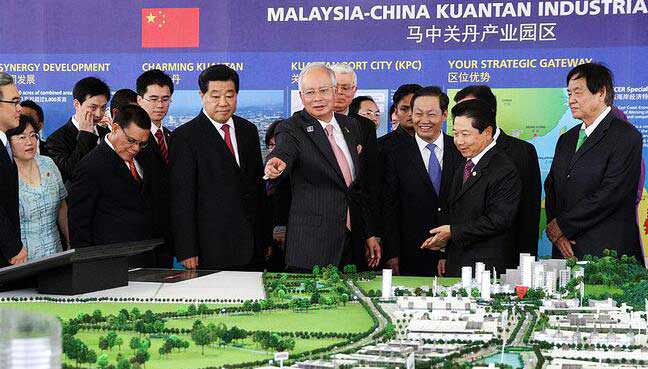Mahathir’s ‘China Wall’ that never existed

(GLOBAL TIMES) – “An industrial park is not a foreign country. It should be under the laws of Malaysia. Cutting out entry to local officials is not the right thing to do,” Malaysian Prime Minister Mahathir Mohamad was reported as saying when asked about the wall enclosing the Malaysia-China Kuantan Industrial Park (MCKIP). We expect the Chinese to comply with our laws and regulations when we are in Malaysia, he said.
His remarks have drawn massive attention as well as hype from Western media outlets.
However, according to a report carried by Sin Chew Daily, the industrial park which was set up in 2012 in line with the China-Malaysia agreement, had no wall. The wall was actually built by Alliance Steel, a Malaysian consortium, to enclose the factory. Vehicles can freely pass through the park and hundreds of vendors are doing business within it. They have never been driven out by the managers of the park.
Setting up walls enclosing the plants is a common practice in other industrial parks of Malaysia and is often seen around the world. Some Malaysians obviously mistook the wall of the factory for the wall of the industrial park and then incorrectly relayed the erroneous message to the prime minister.
Mahathir advocates pursuing a policy of expanding friendly cooperation with China. During his recent visit to Beijing, he also called on Chinese companies to invest in Malaysia and increase technology transfer to his country.
But when it comes to specific China-funded projects, his remarks gave rise to confusion. Like this time, it is startling to equate the controversy surrounding a factory wall with state sovereignty.
Chinese investors have no intention of eroding Malaysian sovereignty. The MCKIP was established by joint promotion of the two governments. It is impossible for Chinese authorities to enforce any law there. The entire industrial park is protected by Malaysian law and is functioning under Malaysian law. If the industrial park’s operation is at odds with local residents’ interests, the Malaysian government should resolve the problems through coordination, instead of comparing them to sovereignty issues, which would probably only aggravate the disputes.
When such remarks are heard by Chinese people, the latter find it piercing. They will definitely make Chinese investors worry about Malaysian public opinion and whether such an atmosphere will affect investment in the country.
Expanding China-Malaysia cooperation is obviously the real intention of the Mahathir administration. It’s only that the new government has some different ideals from its predecessors, which is perhaps a normal phenomenon for Malaysia.
China should understand and adapt to Malaysia’s internal adjustments and remain consistent in cooperation with the country while Chinese firms should protect their own interests. The Chinese government should also help them safeguard their interests so that expanding cooperation and settling disputes according to laws and regulations will become the norm.
Strengthening cooperation is the best choice for both sides to optimise China-Malaysia relations. But Malaysia should be reminded that many words of Kuala Lumpur can be spread to China via the internet, causing different reactions among the Chinese public. How the Chinese public sees China-Malaysia cooperation is by no means inconsequential to Malaysia’s interests.

